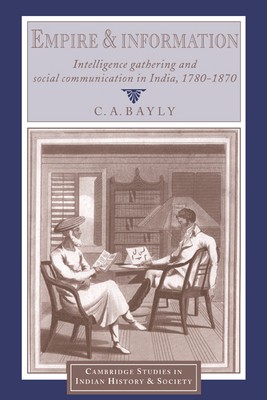
- We will send in 10–14 business days.
- Author: C A Bayly
- Publisher: Cambridge University Press
- ISBN-10: 0521570859
- ISBN-13: 9780521570855
- Format: 15.9 x 23.6 x 2.9 cm, hardcover
- Language: English
- SAVE -10% with code: EXTRA
Reviews
Description
In a penetrating account of the evolution of British intelligence gathering in India, C. A. Bayly shows how networks of Indian spies, runners and political secretaries were recruited by the British to secure information about their subjects. He also examines the social and intellectual origins of these informants, and considers how the colonial authorities interpreted and often misinterpreted the information they supplied. As Professor Bayly demonstrates, it was such misunderstandings which ultimately contributed to the failure of the British to anticipate the mutinies of 1857. He argues, however, that, even before this, India's complex systems of communication were challenging the political and intellectual dominance of the European rulers.
EXTRA 10 % discount with code: EXTRA
The promotion ends in 19d.06:26:14
The discount code is valid when purchasing from 10 €. Discounts do not stack.
- Author: C A Bayly
- Publisher: Cambridge University Press
- ISBN-10: 0521570859
- ISBN-13: 9780521570855
- Format: 15.9 x 23.6 x 2.9 cm, hardcover
- Language: English English
In a penetrating account of the evolution of British intelligence gathering in India, C. A. Bayly shows how networks of Indian spies, runners and political secretaries were recruited by the British to secure information about their subjects. He also examines the social and intellectual origins of these informants, and considers how the colonial authorities interpreted and often misinterpreted the information they supplied. As Professor Bayly demonstrates, it was such misunderstandings which ultimately contributed to the failure of the British to anticipate the mutinies of 1857. He argues, however, that, even before this, India's complex systems of communication were challenging the political and intellectual dominance of the European rulers.


Reviews